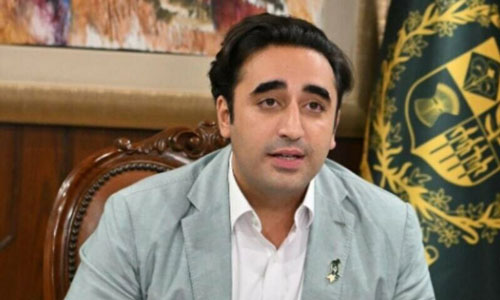Foreign Minister Bilawal Bhutto Zardari on Friday opened a special high-level meeting to commemorate International Day to Combat Islamophobia, with a fervent call to everyone – from any religion or creed – to stand together in the fight against hatred, bigotry and intolerance.
“The observance of this day serves to reinforce our shared commitment to raise awareness about the insidious phenomenon of Islamophobia, advance mutual respect and understanding, and develop concrete measures to eradicate this contemporary plague,” he told delegates in the UN General Assembly Hall, while highlighting that Islam was a religion of moderation, tolerance, and pluralism.
The meeting was co-convened by the Office of the President of the General Assembly and Pakistan in its capacity as the chair of the Organization of Islamic Cooperation Council of Foreign Ministers. In his opening remarks, Bilawal said since 9/11, animosity and institutional suspicion of Muslims and Islam across the world escalated to “epidemic proportions”. “Despite protestations to the contrary,” the foreign minister said, “Islam and Muslims are routinely linked to terrorism”.
In some cases, he said, the rhetoric of hate and incitement to violence was officially inspired, noting that repeated pogroms of Muslims had been instigated by officially sanctioned neo-fascist policies and ideologies with complete impunity.
“The policies and violent actions of those who deny the right to self-determination of Muslim peoples represent the worst manifestations of Islamophobia today,” FM Bilawal added. In this regard, he urged the UN secretary general to formulate an “action plan”, in coordination with the OIC countries, to halt and reverse Islamophobia.
Such an action plan, he said, could include the appointment of a UN special envoy to combat Islamophobia; the adoption of measures to protect holy sites, including the thousands of mosques and mausoleums; the adoption of laws – at the national and international level – to outlaw hate speech, Holy Quran’s vandalisation, and discrimination and violence against Muslims and other communities; the provision of legal assistance and appropriate compensation to those subjected to such Islamophobic acts and; the establishment of national and international judicial mechanisms and laws to hold those responsible for acts of Islamophobia accountable.
“Unfortunately,” the foreign minister said, “the virus of Islamophobia is spreading faster than we have been able to react”.
“Not even the greatest democracies are immune as we have witnessed democratic societies impose Muslim bans.”









